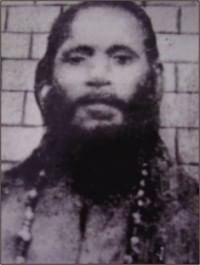Fakir Aftabuddin Khan: Musical Savant

The actor before love's historic symbol.
Mian Tansen, the famed maestro of Akbar's Court, is a very important milestone in the field of Indian classical music, which in its turn has influenced the very development of music itself in the sub-continent. He was the introducer of the Seni Gharana. The heritage of Mughal Music did not in filtrate Bengal till the advent of the English. But since then Bengal has played a very significant role in this line. Bangladesh today enjoys a very important position in the realm of music, Indian classical music in particular. In this connection, the Khan family of Brahmanbaria have a traditional heritage as the flag-carriers of the Seni Gharana which Tansen had introduced in the 16th century Mughal Court. This family has contributed immensely to the expansion of Indian classical music, not only through the hereditary practice of the 'ragas' and 'raginis' but also through the creation of new musical instruments and production of illustrious musicians who have introduced the wonderful sublimity and finesse of Indian Music to the outside world through the ages. The central figure in the 'Sangeet Sadhana' of the family undoubtedly was 'Sur Samrat' Ustad Alauddin Khan, the younger brother and disciple of Aftabuddin Khan.
The village of Shibpur in the then sub-division of Brahmanbaria can well be called the “Centre of Indian Music”, for this is the adobe of Khans. The history of the Khans can be traced to Safdar Hossain Khan or Sadu Khan, who had learnt to play the sitar from Ustad Quasem Ali Khan, the Royal musician of the Tippera Court. Sadu Khan had five sons Samiruddin Khan, Aftabuddin Khan, Alauddin Khan, Nayeb Ali Khan and Ayet ali Khan.
Aftabuddin was an ardent lover of music from his very childhood. It is said that at school, he used to practice 'talas' (beats) on his desk. Sadu Khan appreciated this musical inclination of his son, but his wife did not and was rather strict and demanding about studies. Aftabuddin rebelled, and left the village without telling his parents on. After a few months, his father, having traced him to a neighbouring village, brought him home and arranged for his music lessons.
Aftabuddin had his ABC in music from his father. Later he went to Bangora (in Brahmanbaria) to master the 'tabla'. His 'gurus' were the brothers Ramdhan and Rama Kanai 'Tabalchees' of the Zamindar of Bangora. Of Aftabuddin's memory prowess, it is said that he could easily master 'bol's taught in the morning by evening. Anyway, within a short time, Aftabuddin became adept with the 'tabla'. Apart from this 'tabla', he could play the flute with extraordinary skill from his very childhood and this art was self -taught. The third instrument that he played admirably was the harmonium.
Aftabuddin's fame as a musician spread wide. At this time he married the daughter of one Gul Mahmud of Shreerampur. Sometime later, he came in contact with the Maharishi Mano Mohon Swami of neighboring Shatmora village. The Swami was not only a 'hrishi' but also a born poet. The two joined hands. The Swami wrote songs and Aftabuddin set them to music. These two were so close that it is said that they could communicate with each other from a distance. The story is told that once when Aftabuddin was splitting firewood, he had a strange sensation. Leaving the axe aside, he headed for Shatmora. Saying that he was remembered there. On reaching, he found that Mano Mohan had just finished writing a song and was thinking of Aftabuddin for having it set to music!
The long music career of Aftabuddin was not restricted to performing alone. He invented two instruments. One he called the 'Sur Sangraha'. It is somewhat like the sarod but the sound is softer. His other invention was the melodious 'Megh Dambur'.
Aftabuddin had three daughters, no son. His grandson (by his eldest daughter), Ustad Phuljhuri Khan (1920--1982), was another talented musician of the county.
For his saint like lifestyle Aftabuddin was called 'Fakir'. Aftabuddin Khan died on 25th January in 1933.

 For all latest news, follow The Daily Star's Google News channel.
For all latest news, follow The Daily Star's Google News channel. 



Comments